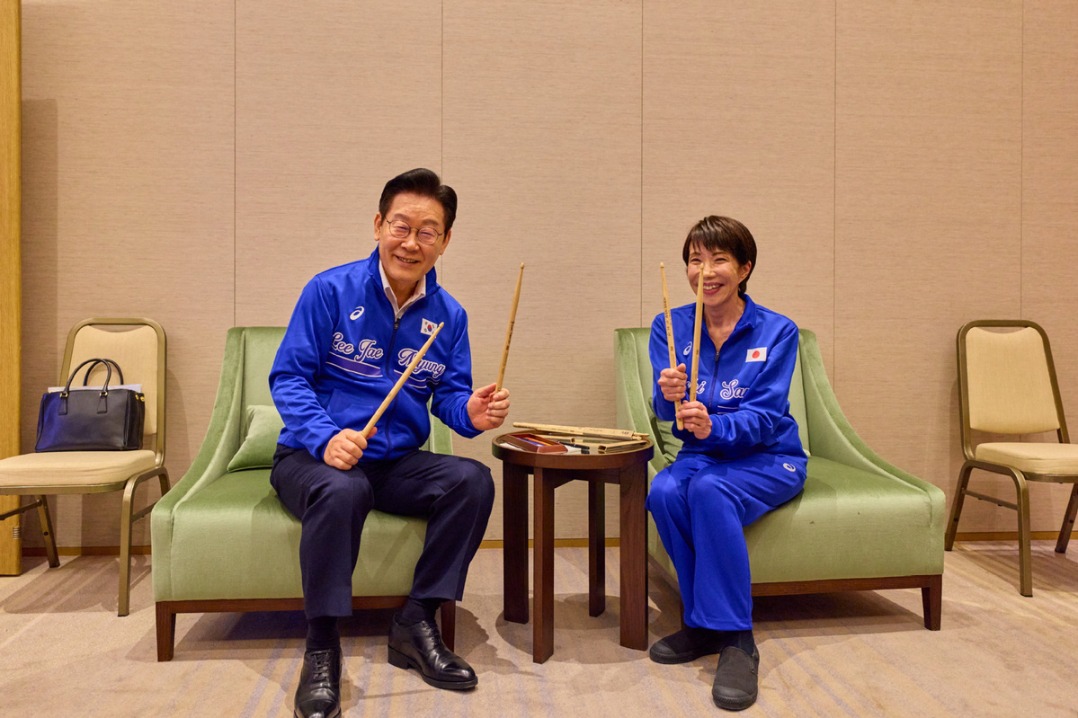Forum: 80 years after repeal of Chinese Exclusion Act, discrimination persists

Eighty years after a discriminatory law targeting Chinese people was repealed, Chinese Americans said they still face racial discrimination.
"Despite the perception that we are living in peaceful times today, frightening things are still happening," said Haipei Shue, the president of United Chinese Americans (UCA). "It's essential for the entire Chinese American community to unite and navigate these challenging times."
The UCA, led by Shue, a Chinese American rights organization, was among the host organizations at a commemorative conference on Tuesday.
To commemorate the 80th anniversary of the repeal of the Chinese Exclusion Act, nearly 400 representatives from 121 Chinese American organizations from 26 states across the US gathered at the Cannon House Office Building in Washington DC for a conference themed "Promoting Civil Rights for All Americans, Preventing Historical Regression".
The conference was jointly initiated by seven Chinese American civil rights organizations and co-sponsored by 80 of them.
For more than six decades, the Chinese Exclusion Act, enacted in 1882, stood as the only law in US history specifically targeting an ethnic group.
On Dec 17, 1943, President Franklin D. Roosevelt signed the Magnuson Act, formally rescinding the Exclusion Act and affording Chinese Americans equal citizenship rights for the first time.
US Trade Representative Katherine Tai, in a speech at the conference, emphasized the importance of inheriting the spirit of pursuing freedom, diversity and equality.
She stated that as the United States pursues its economic interests and national security, it should also make efforts to protect ethnic diversity and equality, especially in commemorating the abolition of discriminatory laws of the past.
A number of Chinese and other Asian American members of Congress, including Senator Tammy Duckworth of Illinois, US representatives Judy Chu, Ted Lieu and Ro Khanna of California, and Representative Grace Meng of New York spoke at the conference.
They said that 80 years after the repeal of the Chinese Exclusion Act, Chinese Americans and the broader Asian American community must continue to pursue their equal rights.
They encouraged political engagement and voting to ensure that federal and state representatives hear the voices of the Chinese American community.
According to a recent survey by the Pew Research Center, 78 percent of Asian adults have been discriminated against as a foreigner in some way, even those born in the US.
The report said that about one-third of Asian Americans have been asked to "return to their own home country". Forty-four percent of Asian Americans ages 18 to 29 said they know someone of Asian descent who has been physically threatened or assaulted since the outbreak of the COVID-19 pandemic.
"Although it's been 80 years since the repeal of the Chinese Exclusion Act, few may realize that a new form of exclusionary legislation is on the horizon," Shue told China Daily.
He was referring to a law in Florida banning foreign investors from specific countries from purchasing farmland or property near critical infrastructure such as military bases while specifically singling out Chinese citizens and putting a broader ban on real estate purchases by them throughout the state.
"From 1943 until now, there hasn't been any legislation by the US government that discriminates against a specific category of foreign individuals, particularly concerning private property," Shue said. "Florida even mandates that Chinese individuals register their private property by the end of the year, an unprecedented move in American history. The Chinese Exclusion Act is not a thing of the past."
"The discrimination against the Chinese community has been evident in university admissions and employment, reflecting broader issues related to racial equity," Yukong Zhao told China Daily.
Zhao is a co-founder of the Asian American Coalition for Education and one of the main initiators of the federal "Harvard complaint" for fair educational opportunities for Asians.
"In addressing significant issues related to the survival and development of the Chinese community, we must oppose all forms of discrimination and bravely advocate for our rights," he said.
An anonymous victim of the China Initiative was also interviewed by China Daily on the sidelines of the conference.
The China Initiative, launched in 2018, was proposed "to tackle Chinese espionage in the United States". The initiative was widely regarded as an umbrella measure for cases with almost any connection to China. It was canceled in February following protests from people in many fields.
"Despite our diligent, law-abiding and industrious contributions to America, certain politicians and media outlets have fueled anti-China sentiments, demonizing our community. Each and every one of us has a responsibility to counteract this negativity," the interviewee said.
"Although we gather today to celebrate the 80th anniversary of the repeal of the Chinese Exclusion Act, it is evident that the shadow of this act persists in many people's minds. From the ‘China virus' rhetoric of a few years ago to the recent surge in hate crimes against Chinese Americans, anti-Asian sentiment, and the China Initiative, I have personally experienced the repercussions.
"The recent Florida land law is just the latest incarnation of exclusionary policies that unfairly target Chinese Americans, and we must resist," said the interviewee.
The interviewee also claimed Chinese-Americans serve as a vital bridge in US-China relations. "Grassroots, academic and cultural exchanges represent the most effective means of communication. It is crucial to create opportunities and enhance such exchanges.
"Among ordinary people, mutual affinity prevails. It is the reprehensible actions of extremist politicians that incite hatred. We must find ways to curb these negative behaviors through people-to-people exchanges and interactions."

































